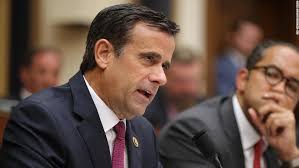Election Security: Iranian and Russian Interference
With most major media organizations projecting that Joe Biden will become the 46th president of the United States, many have speculated about foreign interference in the 2020 presidential election.
With most major media organizations projecting that Joe Biden will become the 46th president of the United States, many have speculated about foreign interference in the 2020 presidential election. As of late October, CNN reported that “Both Iran and Russia…obtained US voter registration in an effort to interfere in the election.” Despite Iran’s activities, it was widely believed that Russia posed the bigger threat to the integrity of the election. This is partly due to the fact that Russia interfered with the 2016 election as well, as documented in numerous reports from the Senate Intelligence Committee. The reports found that Russia interfered with the goal of harming the campaign of Democratic nominee Hillary Clinton and increasing political and social discord in the United States. This was accomplished primarily through a social media campaign against Clinton, but also included a multi-pronged cyber attack involving the hacking of the emails of prominent Democrats, the fabricating of malicious articles, and the spreading of disinformation.

This October, the Associated Press News found that Russia had “targeted the networks of dozens of state and local governments in the United States,” and experts estimate that these efforts involved “stealing data from at least two servers.” Officials attributed this interference to a state-sponsored hacking group, known as DragonFly and Energetic Bear in the cybersecurity community. At the time, many officials repeatedly stated that it would be extremely difficult for Russia to impact the vote in a meaningful way, though there was concern that hackers could begin by infiltrating a county network (which are typically left under significantly less security than national networks), then work upwards to larger election-related systems. Fortunately, it seems their concern wasn’t warranted, as U.S. officials found that Russia failed to mount any major operations to interfere with this year’s election, according to Ellen Nakashima of the Washington Post. While incidents of interference did occur, these failed to reach the levels recorded by American intelligence on the 2016 presidential election or the 2018 midterm elections. The possibility of Russia interference is not over, however, since Trump has not conceded the election and brought legal challenges to numerous states. Russia has continued to deny accusations of interference.
In spite of this threat, US officials spent most of their news conferences discussing the threat Iran posed to the election. Just a few months before the election, numerous election officials from states such as Florida (which was a key swing state) and Alaska informed law enforcement that registered voters had received threatening emails warning them to, “Vote for Trump or else!” Director of National Intelligence John Ratcliffe revealed that these emails originated in Iran, written by individuals who had posed as the far-right group known as the “Proud Boys.” While Ratcliffe claimed these emails were intended to harm President Trump, it is not clear how that is the case, since they primarily targeted Democrats and urged them to switch parties and vote for Trump. Reportedly, Iran also linked a video in some of the emails which spread disinformation about voter fraud. Iran has vehemently denied these accusations, even charging that they were fabricated in an attempt by the American government to undermine its own voters’ confidence in the election. The Treasury Department has issued new sanctions on Iran in response to these events, but has not levied any new sanctions against Russia, though it is not clear why at this time.
Nearly all projections have Biden winning this election, with him currently holding a sizable lead in the electoral college. Yet President Trump continues to refuse to concede the election, taking to Twitter to make baseless claims regarding rampant voter fraud and illegal voting. None of his claims, however, mention foreign interference or how it may have actually aided him in this election.

